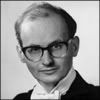- 20 Jul 2011 22:20
#13760496
"This is because most socialist traditions are more sophisticated than any libertarian tradition. Libertarianism is theoretically very simple and its analysis rarely has much to do with real life, whereas socialist theories tend to be empirical and more dynamic. Also, socialists have a long artistic and literary tradition; libertarians have Ayn Rand and some science fiction authors." The also clearly implies a separate thought.
I'm not attempting to defend socialism on those grounds, as (1) that's absurd and (2) I am not a socialist. I'm merely pointing out why socialism is seen as a more sophisticated ideology than libertarianism.
Also, the hilarious snobbery of Randists would seem to suggest that your last sentence is false.

"Perhaps not voting is related to some kind of desire to gain plausible deniability regarding how society functions." - Rainbow Crow
This begs the question how firearms would be controlled (not regulated, more like owned and operated, identified with), produced, and distributed though.Oh, you mean after a socialist state has been established via revolution. In that case you'd have to ask a Marxist; I do know that a Marxist would advocate an armed society now.
Without identifying and appreciating individuality, none of this could take place.
You're really being dishonest here. You were referring to both intellectual and artistic tradition.No, I am not being dishonest; you are misreading my post. I made two distinct points: that libertarianism is theoretically very simple whereas socialism is not.
"This is because most socialist traditions are more sophisticated than any libertarian tradition. Libertarianism is theoretically very simple and its analysis rarely has much to do with real life, whereas socialist theories tend to be empirical and more dynamic. Also, socialists have a long artistic and literary tradition; libertarians have Ayn Rand and some science fiction authors." The also clearly implies a separate thought.
I'm not attempting to defend socialism on those grounds, as (1) that's absurd and (2) I am not a socialist. I'm merely pointing out why socialism is seen as a more sophisticated ideology than libertarianism.
Even regarding art though, libertarianism doesn't seek to establish tradition or become renowned. As a matter of political strategy, you could say libertarianism shoots itself in the foot here.You need to stop anthropomorphizing political ideologies; libertarianism as such cannot seek to do anything. My point is that there are many more writers who identify as socialist than there are that identify as libertarian (you might find some more science fiction libertarian writers, but then again socialism also has a huge tradition there).
One, libertarianism does have extensive epistemological considerations. The problem is when people criticize libertarianism, they say it's not practical, so if anything, it's libertarianism's opponents who are unsophisticated. Is libertarianism predictable? Yes, but that's part and parcel with libertarianism's goal. The goal is to be openminded and transparent so people can understand, not to be snobbish so people become impressed.This is false; libertarianism does not have a single epistemological base. The only epistemology associated with any variation of libertarian ideology is the Randian epistemology, which is a terribly shitty epistemology.
Also, the hilarious snobbery of Randists would seem to suggest that your last sentence is false.
However, many libertarians do not delve into epistemology because the libertarian personality cannot afford it. Libertarianism is an ideology built upon accommodating sensitive people. As a sensitive person though, it becomes difficult to explore epistemology at a young age because you live in a very noisy world where you aren't allowed to focus.This assertion is silly and untrue. I don't see a hell of a lot of "sensitive souls" among the libertarian population.
Many do, many don't. Landownership, free banking, and contained government are certainly libertarian ideas.You're calling Jackson an advocate of contained government?

"Perhaps not voting is related to some kind of desire to gain plausible deniability regarding how society functions." - Rainbow Crow







 This is absolutely correct. Nozick's epistemology was both an answer to skepticism and to Gettier cases and is not tied in with his political philosophy.
This is absolutely correct. Nozick's epistemology was both an answer to skepticism and to Gettier cases and is not tied in with his political philosophy. - By wat0n
- By wat0n - By Potemkin
- By Potemkin